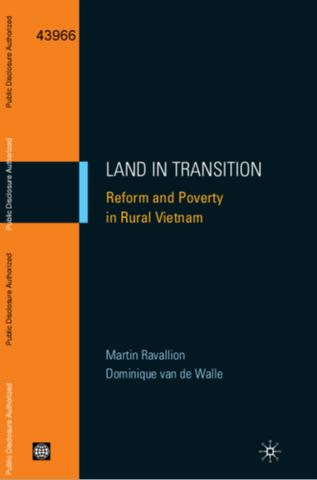Investment and Income Effects of Land Regularization : The Case of Nicaragua
The authors use data from Nicaragua to
examine the impact of the award of registered and
nonregistered title on land values and on investments
attached to land. They find that receipt of registered title
increases land values by 30 percent and greatly increases
the propensity to invest, bringing investment closer to the
optimum. Consistent with descriptive statistics indicating
great demand for regularization of land rights, especially


